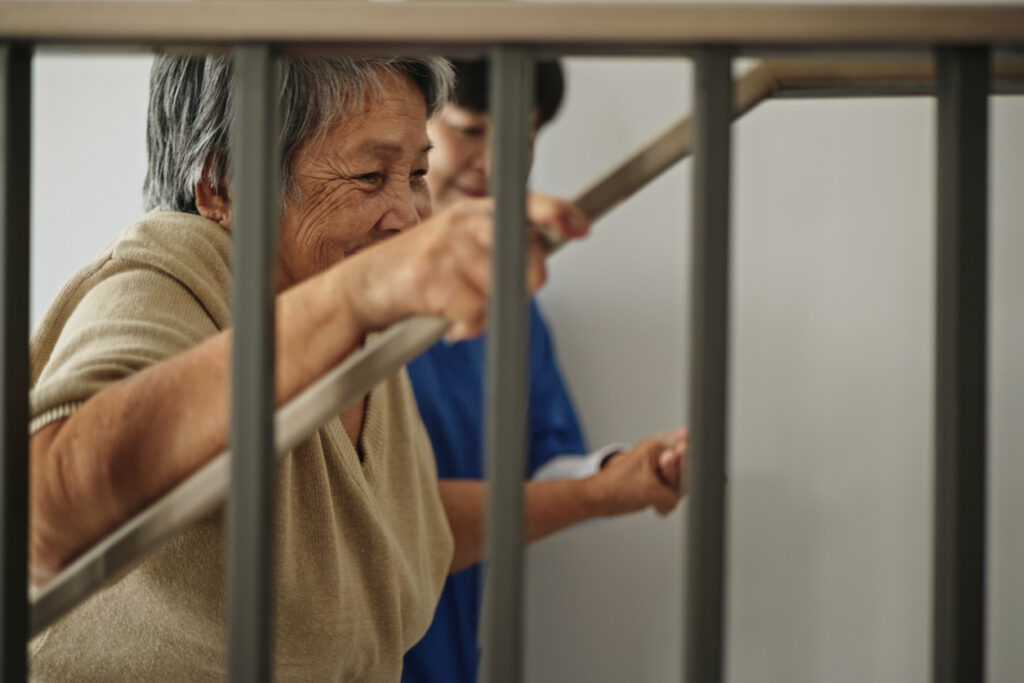
Recovering from the pandemic with the help of loan finance
One of Central YMCA’s main income streams was ravaged by the pandemic. Rather than draining its reserves, Central YMCA is using a £4m loan from Charity Bank to support its recovery. Kieran Connolly, Chief Resources Officer at Central YMCA, explains why.
Why did you need the loan?
We have a large gym facility in central London. While many of our education and training activities continued during the pandemic, our gym and face-to-face fitness classes had to pause during the lockdowns. Around 50% of our revenue streams were adversely impacted, meaning we incurred debt.
We looked for a long-term loan facility to cover that debt and to support us through the recovery. As the pandemic continued, the need for loan support became more pressing. We’re still not back to pre-pandemic income levels, but we hope to achieve that over the next couple of years.
Why did you need to refinance your existing debt?
We got the loan through our investment company; it was secured against our portfolio and renewed on a three-month basis. It didn’t provide the charity with any long-term security; there was always a risk (albeit a very tiny one) that the loan facility would not be renewed.
So, we wanted some long-term comfort to help us to navigate through the pandemic period and plan for our sustainability.
Have you agreed a 25-year repayment period?
Yes, 25 years with two years of interest-only payments at the start. It’s good to have that agreed, but according to our financial projections we should be generating a surplus within two to three years, so we’ll then look at whether we have the capacity to make regular overpayments.
There was recognition across our board of trustees that they wanted a long-term plan to both provide stability to the charity and give us clarity so that we can plan, but if we do have capacity to make overpayments, that will be financially better for us.
Were your trustees concerned about taking out such a large loan?
Yes, but there was consensus across the organisation that we needed support. However, there was a lot of discussion about whether we should use the investment portfolio to repay our debt instead.
The loan we have with Charity Bank is secured against our head office and main property in central London. We’ve been based on this site for over 100 years, but it was pretty much empty during the pandemic, so the loan offered us the opportunity to make more of the asset. Securing the loan against the property frees us up to use our investment portfolio for more aspirational and charitable purposes, including the activities and programmes that we run for our communities.
The trustees were comforted by Charity Bank’s reputation and the fact that the loan was financially affordable.
What made you choose Charity Bank for the loan?
We went through quite an intense comparison process looking at different funding bodies. Investment agents put forward proposals, as did various high street banks and social sector organisations, including Charity Bank.
There were two main things that made us choose Charity Bank – the proposal that Charity Bank put forward was very competitive, and it has a solid reputation within the YMCA community and the wider not-for-profit sector. I think the fact that Charity Bank has a long history of working with YMCAs also made us a more appealing customer.
Did you speak to any of those YMCAs?
I’ve conversed with YMCAs, particularly in London and the southeast of England, and had first-hand accounts of how the bank has supported them. Charity Bank also provided a number of illustrative case studies showing how they’ve worked with different YMCAs.
Unlike purely commercial banks, who are more driven by financial incentives, it’s clear that Charity Bank is there to provide support and really understands YMCAs across the country.
Was the fact that Charity Bank only serves charities and social enterprises important to you?
From my perspective, it made things easier because I didn’t have to justify why we haven’t gone into a more commercial area to achieve a stronger financial position.
Charities aren’t always as equipped as commercial organisations when it comes to demonstrating their financial viability because they reinvest any surplus back into their programmes and communities.
Charity Bank demonstrated its understanding of that situation. For me, seeing the array of different charities that the bank works with reinforced that understanding.
What helped you to manage the loan process?
It really helped that everyone was clear about the timeframes. Everyone recognised that it wasn’t a case of doing something overnight, and that we had to make sure the information we prepared was complete, clear and properly investigated.
Acknowledging that it is a large piece of work and that it is going to take time, really took the stress off my day-to-day work.
Were there any challenges that came up that you hadn’t anticipated?
Well, the current property was built in the 1960s. While we used to own it fully, we now lease part of it but still have freehold ownership. So that’s quite a complicated situation and there was a bit of back and forth between our solicitors and Charity Bank’s solicitors about it.
I was hoping we’d hold all the necessary information on our computer system to help me answer any questions, but in the end, I did have to dig out bits of paper from our archive rooms to double-check things. That created more work than I was hoping for. But it also helped me to get a better understanding of some areas of our organisation.
Charity Bank was clear what was needed, and everything was communicated really well. We had a good understanding of what was outstanding at any one time, which really helped me to manage my workload and make sure we hit the deadlines. So there weren’t any surprises when it came to Charity Bank’s requests.
Did you have any support from the Lending Services team or your relationship manager?
Our relationship manager, Adam, was excellent. We had regular catch ups to talk through the different steps and what information was needed when. He was working through everything to ensure we’d get approval.
Once the loan had been approved in principle, the Lending Services team were excellent at providing information, investigating queries, making sure we got clarification on certain points and so on. Charity Bank’s solicitors had a number of queries regarding Central YMCA, and our solicitors had various questions regarding the loan agreement. The Lending Services team acted as a conduit to those kinds of queries, and everything was dealt with promptly and clearly. The level of communication made the process a lot less stressful.
What would you say to other charities or social enterprises who are thinking of taking out a loan?
What worked well for us, was spreading the net wide for our appraisal exercise. We didn’t only look at not-for-profit lenders; we just looked at everyone who was potentially interested in loaning us the money.
Having that scale of different proposals means you can pick out the best fit. What supported that process was when organisations, particularly Charity Bank, were able to succinctly articulate how they’ve supported similar organisations, and could demonstrate that they understood our organisation, the problems that we face and how the pandemic has adversely impacted us. I think that’s what prompted us to select Charity Bank as a front runner.
And what’s next for Central YMCA?
We’ve designed a strategy for the next three years, of which we’re now a couple of months in. The more aspirational areas – venturing into new markets and building new products – will probably come in years two and three of the strategy. But for now, we’re very much focused on the recovery process, especially for the areas of the organisation that are significantly impacted by the pandemic.
For example, we’re looking at initiatives to encourage people to return to our health and wellbeing facility, which is still impacted by so many people working from home. We can’t just sit back and expect our members and learners to come back through that door – there’s a massive amount of work required to encourage them in.
If you need to access finance to support your pandemic recovery strategy, please call Charity Bank on 01732 441919.
About Charity Bank
Charity Bank is the loans and savings bank owned by and committed to supporting the social sector. Since 2002, we have used our savers’ money to make more than 1400 loans totalling over £605m to housing, education, social care, community and other social purpose organisations.
Nothing in this article constitutes an invitation to engage in investment activity nor is it advice or a recommendation and professional advice should be taken before any course of action is pursued.


